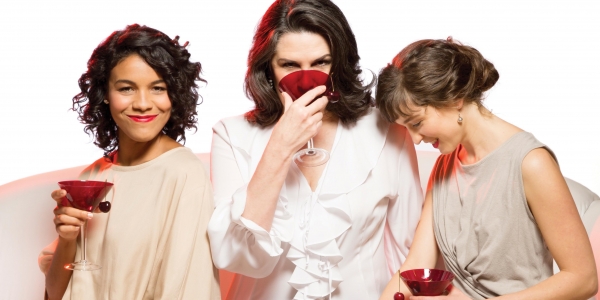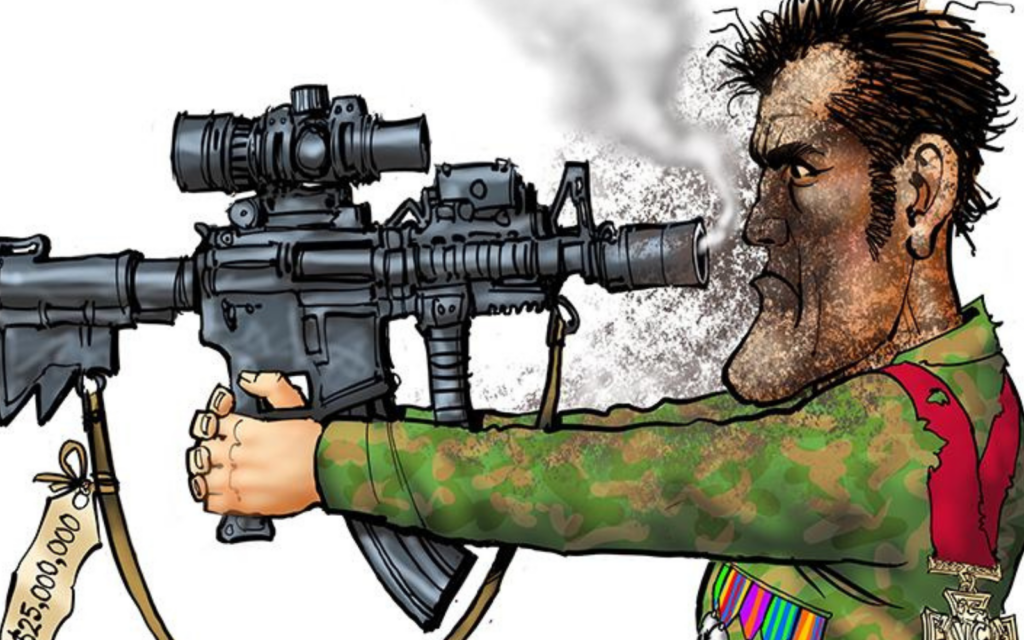“The more you watch Chekhov you more you realise that there is so much more to learn,” says Toby Truslove on a break from rehearsals. “For a guy that was writing 100 years ago it has a very contemporary feel. If you have never seen one, it’s important to get a Chekhov under your belt, to see why we are still staging his plays and why he is still revered as an amazing playwright. It’s a joy to watch and it’s really funny. Chekhov wrote it as a comedy and in the end he was always worried that people took it too seriously, so hopefully we’ve injected the humour that he intended back in. We all know what’s it’s like to argue with our families so we see something utterly fascinating and familiar in it. It’s interesting that these stories are can be 100 years old but we still think, ‘yep, that’s how a mother and daughter talk to each other or that’s how a boyfriend and girlfriend talk. Or that is a family dynamic.’” Family dynamics don’t change.
The Cherry Orchard, Chekhov’s last work, concerns itself with an aristocratic Russian matriarch as her family returns to the estate, including the titular cherry orchard, before it is to be auctioned to pay debts. “All of Chekhov’s characters don’t really understand anyone else, they all follow their own story, they’re always trying to get their own point across. It’s actually a very modern way of doing things, people talk at cross purposes a lot and don’t really listen. They just drive their own narrative and ideas. He is very good at switching your alliances back and forth between who you think you like. He doesn’t do that thing where you go, ‘This is the good guy or this is the good girl, this is the bad person in this play.’ It’s just people trying to live.”
Toby’s background is comedy; Laid, The Libraians, Thank God You’re Here, Scumbus and currently (of all things) Slide Show. “I didn’t come from an acting family…my parents were very surprised when I said I wanted to be an actor,” he says. “I didn’t go to an acting school either, I went to an all boys private school, all about rowing and footy. Weirdly enough I remember watching Ferris Buller’s Day Off and I thought, ‘That looks like a lot of fun.’ But I didn’t know how to go about doing it, I had never met an actor, this was in Perth and I didn’t know any actors, I’d never gone to the theatre, it was a strange beginning. I went to university to study psychology, because that’s what you did from school and I literally didn’t know you could study acting. I had no idea there was such a thing as an acting school. Luckily and bizarrely I walked out of a lecture half way through, I just went ‘this is shit’ walked out and bumped into a friend who was the niece of the speech and drama teacher of my high school, she walked me across campus and enrolled me in the theatre art department and that was it. And there I met actors.”
This Melbourne Theatre Company production is billed as written by ‘Simon Stone, after Anton Chekhov’ indicating a reworking of the classic. “It’s still thematically the same but it has been completely rewritten,” says Truslove. “I think people get too upset about modernising or updating things, if you were trying to do Shakespeare with a codpiece that’s just as distracting because it becomes about the costuming rather than being about the people. The point about doing these plays is that we can watch them in the modern time and feel that it is not a museum piece, it’s a piece that has relevance. You can watch it and think, ‘Shit, I get that.’ Stone is very open to throwing things in, if you’ve got a handle on what your character would be saying at this point, he’s open to looking at the script and going ‘Okay, let’s make it sound as real and natural as possible,’ so you are not pulled out in anyway by something that sounds anachronistic. All the characters are the same and faithful in spirit to the original. It’s not rewritten so that anything major has changed. Don’t worry there is still a cherry orchard, he hasn’t done anything like now it’s set on Mars and it’s a plasma farm.”
BY JACK FRANKLIN







